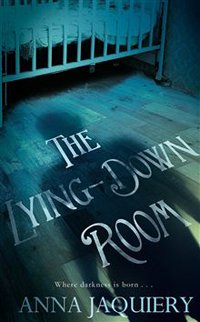The Lying Down Room introduces us to the charismatic and dedicated Chief Inspector Serge Morel. The story opens in Paris in the stifling August heat, and Morel is called to examine a disturbing crime scene. An elderly woman has been brutally murdered to the soundtrack of Faure’s Requiem, and her body grotesquely displayed. The reasons for this murder and the choice of victim baffle Morel and his team.
But our detective has problems of his own. His father, such an influence in his life, is descending into the grip of senility. If that weren’t enough for him, Morel is having an affair with a friend’s wife, but has become unsettled by the reappearance of his lost love, Mathilde. Like so many other fictional detectives, Morel has a quirky interest to relieve his angst and focus his mind. In his case it’s origami.
As the investigation continues, and further murders happen, his fingers fold faster and faster. He makes a connection between the victims and two individuals – a middle aged man and a young boy – who distribute religious pamphlets in the suburbs. Soon his inquiries take him back into the past, away from Paris into the French countryside, and eventually to the heart of Soviet Russia. A tragic story begins to unfold.
In terms of characterisation, The Lying Down Room contains all the key ingredients needed to herald the arrival of a new detective in the crime fiction genre. Morel is a very carefully constructed and wonderfully realised character. He combines natural charm and humour that immediately resonate. His interactions in both his professional and personal lives allow the many different facets of his character to shine – like the focused and dedicated police officer, and the man thwarted in love. There are some intensely moving scenes between him and his father. This relationship is filled with pathos, adding poignancy to Morel’s situation. Morel is a man of contradictions with his character being all the more emotionally interesting for it, and consequently the scene is set for further exploration of this detective.
The narrative is particularly impressive, with nice, clean delineation between the various strands that come into play within the plot. Not only is the central murder storyline well paced and realistic, but as Jaquiery expands the story to encompass the personal narratives of the perpetrators themselves, she weaves together various locations and timelines. What emerges is an incredibly human tale of lost opportunities and wicked twists of fate that can put an individual on the path towards murder. Cleverly, this aspect of the novel invokes natural sympathy in the reader as we bear witness to the incredibly sad events in our antagonists’ pasts, evinced in the stark portrayal of life in Soviet Russia, and the mental and physical wounds this produces. At times, Jaquiery handles the sheer emotional heartache of some of these scenes more in the vein of literary fiction rather than a genre crime novel.
There is little to fault in this debut, combining as it does a superbly plotted and emotive criminal investigation with the introduction of a police protagonist more than imbued with enough charm and interest to carry the weight of a series. Anna Jaquiery is half-French and the book was written in English, but she demonstrates all the natural flair and quirks of French crime fiction that fans of Vargas, Lemaitre, et al, will relish reading.
Mantle
Print/Kindle
£6.59
CFL Rating: 5 Stars











It sounds like an excellent book, but I cannot find it in French – if it was written in English, it is hardly French crime fiction, is it?
Can you point me in the direction of the original (if indeed there is one.)
Thanks for getting in touch. The ending of the review was badly worded and I have corrected it. The book was indeed written in English as you pointed out, though the author is heavily influenced by her French background which shows through in the style and atmosphere.